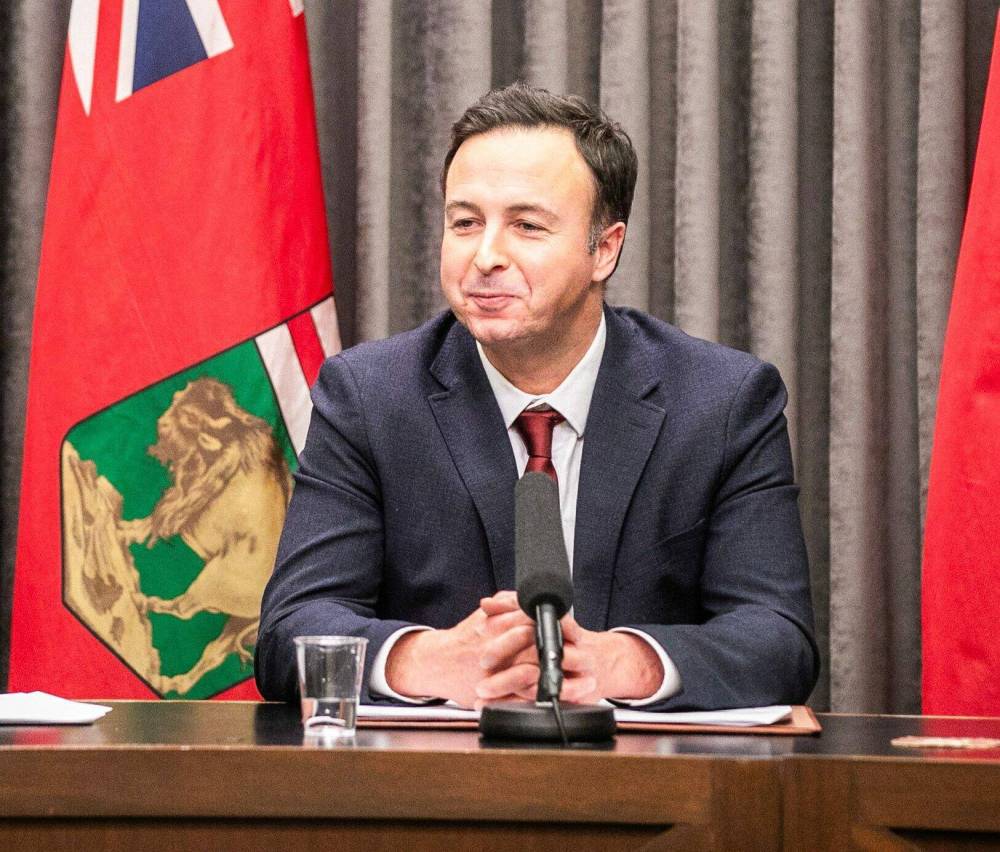A challenging budget at an uncertain time
Advertisement
Read this article for free:
or
Already have an account? Log in here »
We need your support!
Local journalism needs your support!
As we navigate through unprecedented times, our journalists are working harder than ever to bring you the latest local updates to keep you safe and informed.
Now, more than ever, we need your support.
Starting at $15.99 plus taxes every four weeks you can access your Brandon Sun online and full access to all content as it appears on our website.
Subscribe Nowor call circulation directly at (204) 727-0527.
Your pledge helps to ensure we provide the news that matters most to your community!
To continue reading, please subscribe:
Add Brandon Sun access to your Free Press subscription for only an additional
$1 for the first 4 weeks*
*Your next subscription payment will increase by $1.00 and you will be charged $20.00 plus GST for four weeks. After four weeks, your payment will increase to $24.00 plus GST every four weeks.
Read unlimited articles for free today:
or
Already have an account? Log in here »
Hey there, time traveller!
This article was published 20/03/2025 (306 days ago), so information in it may no longer be current.
Later today, Manitoba Finance Minister Adrien Sala will deliver his government’s budget for the upcoming fiscal year, which begins on April 1.
With the province already shouldering a number of fiscal challenges, combined with the impact of wide-ranging tariffs expected to be imposed by the Trump administration on April 2, Manitoba is facing higher levels of financial risk and uncertainty than perhaps since the Great Depression of the 1930s.
With that dire reality in mind, there are several issues to consider as Manitobans analyze the budget and the numbers within it. At the top of the list is the question of how credible the government’s numbers really are.

On Dec. 16 of last year, Sala disclosed that the projected deficit for the current fiscal year, which ends on March 31, has climbed to $1.3 billion. That’s more than half a billion dollars higher than the $796-million deficit that was projected in Budget 2024. Sala’s shocking revelation came less than three months after the government had falsely claimed it was on track to hit its original target deficit of $796 million.
Did the massive overspend only become apparent to Sala and his colleagues after the September report? If so, how could that happen? How could the finance minister be unaware of the true state of the province’s finances?
Further elevating concern over the accuracy of the government’s books is the fact that, just days after Sala’s super-sized deficit disclosure, Manitoba auditor general Tyler Shtykalo issued a report regarding the government’s financial report for the 2023-24 fiscal year, in which he said “We have found numerous errors in the consolidated information due to inaccurate, incorrect or inconsistent information being used to prepare the adjustments.”
Among his many troubling findings, he said that the government did not obtain all relevant information needed to prepare the financial statements, and did not have adequate processes in place to ensure the information used in the statements was accurate.
None of that inspires confidence in the province’s books and, just three months later, Sala must convince Manitobans that the problems identified by Shtykalo have been fixed.
Beyond the critical accounting issues, the key question surrounding Budget 2025 is whether the government will abandon its campaign promise to balance the books before the next provincial election in 2027. It was an unrealistic commitment when made in 2023 and last year’s budget repeated the promise, based upon wildly over-optimistic revenue and expense projections.
Given the many fiscal challenges on the horizon, the balanced budget pledge appears even less achievable. Will Sala finally admit that during today’s budget speech?
In terms of the financial plan within the budget, the primary focus should be how the government attempts to manage all of the spending pressure it is facing within the fiscal context of uncertain revenues and rising expenses in critical areas.
As demands within our troubled health-care system continue to grow, so does the cost of providing that service for Manitobans. The government has taken many aggressive steps to control health-care expenses, but the larger-than-expected deficit for the current fiscal year proves how hard it is to accomplish that objective.
Will today’s budget reflect that reality, or will it set an unrealistically low health spending target that will inevitably be exceeded?
As the prospect of business failures and job losses caused by the U.S. tariffs becomes more real, will Budget 2025 contain contingency measures to help businesses and their employees weather the storm?
On education, the government’s funding for school divisions has not kept pace with the increased costs being shouldered by those divisions. Will we see the same level of underfunding of the province’s colleges and universities?
On infrastructure, Manitobans have witnessed a steady decline in the state of the province’s roads and highways since the current government was elected. Will Budget 2025 allocate the money needed to address that problem, or should we expect the rough roads to further worsen?
Manitoba Hydro plays a big role in the budget deficit calculation, but low revenues caused by low water levels can increase the deficit by hundreds of millions of dollars. How realistic are the government’s revenue projections for the Crown corporation this year?
Here in Brandon, can we expect Assiniboine College, Brandon University, the Western Manitoba Centennial Auditorium and the Keystone Centre to receive their fair share of funding compared to similar Winnipeg facilities? Will Park Community Centre finally get funding it was promised?
Those are just a few questions relating to how the Kinew government plans to navigate the uncertain fiscal environment the province is facing for the coming fiscal year. Some answers will become apparent later today.
